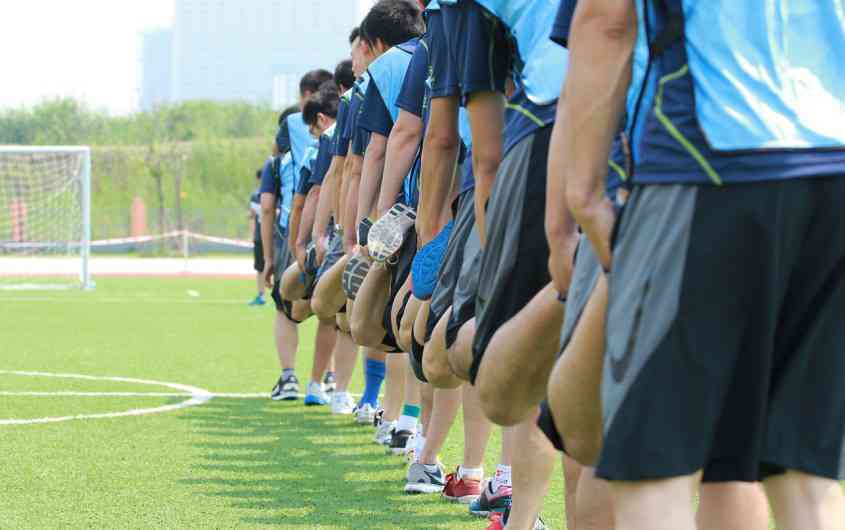A growing body of research literature finds that in addition to improved physical health, sport plays a primarily positive role in youth development, including improved academic achievement, higher self-esteem, fewer behavioral problems, and better psychosocial.
Sport plays a primary role in youth development
This article is from the authors at Truesport.org. The content is an excerpt from the Truesport report.
Before you look at the hard facts of the benefits of sports and exercise. I want you to take a brief look at TheLifeHabit FREEDOM principles. As you read through this article, you will see the great benefits of sport for you and your children. It is then so important to make playing sport a part of your daily or weekly routine.
F. Focus on one aspect at a time
R. Regular, repeated activities are essential. R also stands for Rest. While it is important to take action, it is just as important to take a break every now and then. Give the body and mind a chance to recover.
E. Easy does it. It must be very easy to start, so that the habit can be ingrained without any perceived pain.
E. Extend yourself slightly each time. If you start off this week running 10 meters, next week make it 11. After a couple of weeks, you'll be running 20m easily.
D. Diversify. Let's face it. If it's boring, we won't keep at it. have fun and change the routine often.
O. Observe yourself and your response, and make changes as you go along. If you don't measure your progress in some way, how do you know what you've achieved.
M. Multiply. By making lots of little changes, you'll start to see huge benefits. It's the power of compounding. Add a bit each week and watch yourself grow.
Many studies focus on the effects of sport on the five “C’s”—competence, confidence, connections, character, and caring—which are considered critical components of positive youth development.
Physical and psychological benefits of sport for girls
As described in PART 1, sport participation conveys myriad psychological, physiological, and sociological benefits. In recent years, research has begun to explore the particular benefits of sport for girls and young women, who are increasingly playing more sport at all levels. Studies are beginning to tease apart the issues that contribute to girls electing to play, factors that keep them playing, and reasons for their dropping out.
A 2007 study found that women who played sport in high school were 73 percent more likely to earn a college degree within six years of graduating high school than those who did not play sport.
This advantage held up even for students facing socioeconomic challenges to graduating college.
Playing sport also conveys other beneficial outcomes: Girls and young women engaged in sport are less likely to be overweight or obese, depressed, smoke, use illicit drugs, or have unwanted teen pregnancies. This may possibly be related to the goal of maximizing athletic performance or the goal of protecting sport eligibility or scholarships.
Suicide and sexual victimization also is lower in girls and young women engaged in sport.
Sports psychology research has shown that girls gain confidence and self-esteem through participation in sport and physical activity. A positive team sport experience may mediate the risks of low social acceptance and dissatisfaction with one’s body. Determining the relationship between selfconcept and sport participation is complicated by the measurement models used across studies, but greater participation in sport has been found to be relational to greater emotional and behavioral wellbeing.
Sport participation also may meet the developmental needs of adolescent girls, including having a sense of belonging, a sense of mastery over one’s body, the experience of generosity, and the sensation of mattering.
Life skills such as persistence, teamwork, goal setting, leadership, and character development may transfer from sport to academics, family life, and the work setting. Sport involvement, in addition to making college attendance more likely, correlates with greater levels of overall extracurricular and community involvement. This is true for both boys and girls.
Peer and parental support also influence girls’ enjoyment and learning of sport. Girls develop important social relationships through the physical activity of sport, both with their teammates and with their adult physical activity leaders, but girls may suffer negative psychological consequences if their developmental needs for feedback and encouragement are not considered by instructors or coaches.
Sport as an agent for social change
Some research has shown that sport contributes to the development of social capital.
Research has shown that the longer youth play sport, the greater attachment they have to their community, according to a series of measures. Studies using data from the University of Maryland’s National Youth Survey of Civil Engagement show that sport participants, compared to those who do not participate in sport, are more likely to register to vote (66 percent versus 44 percent) and to follow the news (41 percent versus 27 percent).
Studies by Eccles and Barber show that youth sport participation is positively related to adult involvement in community activities that can last a lifetime. Youth who participate in sport are more likely to make friends, including those of different races.
Young athletes are better able to acquire emotional control, learn the value of teamwork, and exhibit initiative, all social skills that can contribute to a better community. However, with many of these findings, the associations could be correlative rather than causal, because youth who choose to be highly engaged in sport also may chose to be highly engaged in other community activities.
There is no question that providing opportunities for youth to play sport provides community benefit—if for no other reason than idle time can be filled with activities that are healthy and positive. F
Organized sport efforts in the Middle East have provided youth with positive and constructive experiences, creating peaceful and productive relations with neighbors. “Youth and youth sport leaders play vital roles in transforming dangerous and violent conflict situations associated with terrorism across the world”
Sport alone does not build character—context and environment matter
The benefits of sport do not necessarily always accrue. Positive outcomes are more likely to occur when a sport program emphasizes mastery, includes positive adult behaviors and supervision, and focuses on personal skills. In fact, some studies have found that young athletes in some sports are more likely to be involved in risky behaviors— such as alcohol use—than those who do not participate in sport. Research also has found that in addition to physical injury, sport can create stress and anxiety and even promote heightened aggressiveness. These outcomes can be shaped by the nature of the athlete’s experience—for example, the attitudes and behaviors of coaches, teammates, and parents.
Optimizing the potential benefits of true sport
The Sport in America research found that, overall, sport is delivering on what most parents expect their child will learn, particularly the values deemed most important by the majority of parents— having fun and doing your best. Indeed, nearly all parents who hoped that sport would teach their children to have fun also say this expectation has been exceeded or met.
Four out of five adults agree that sport provides a source of fun and enjoyment and can reduce youth crime and delinquency—and that losing in sport can teach valuable life lessons. However, almost two-thirds of adults also agree that sport overemphasizes the importance of winning, a belief most strongly felt by older adults (ages 45 to 64) who are significantly more likely than adults overall to agree that sport overemphasizes winning.
To view the original article click here







